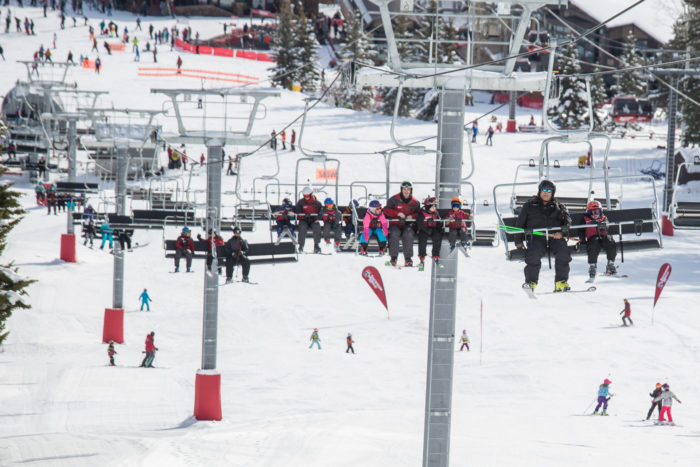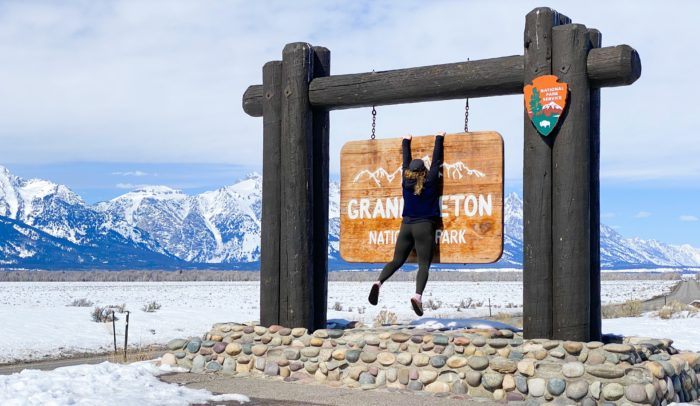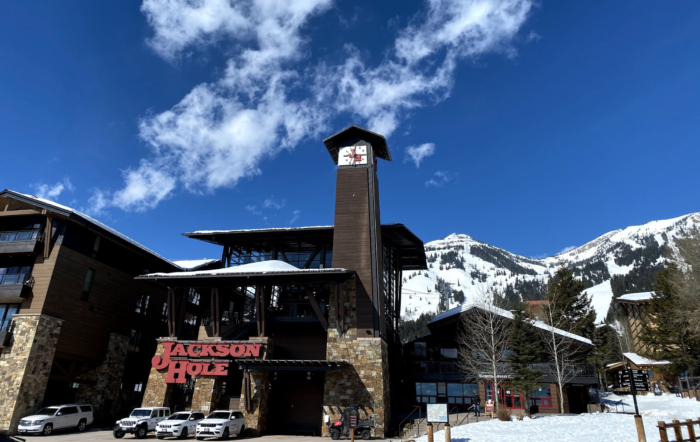
On June 22, The White House announced a hold on work immigration visas, which could impact how resorts are able to hire staff. The “Proclamation Suspending Entry of Aliens Who Present a Risk to the US Labor Market Following the Coronavirus Outbreak” is in effect till December 31, 2020.
Some say HR managers in ski resorts around the country will be panicking following the news of this proclamation.
The 2020-21 winter will be interesting if international workers are not allowed to enter the US. Many ski resorts, especially the big ones, rely on J-1, H2B, and other temporary visa holders to work seasonally for the winter. It is estimated 219,000 temporary workers around the US will be affected, while thousands of US businesses could miss out on top talent from around the world.
Personally, I have been on a couple of different J-1 visas working for Jackson Hole Mountain Resort, WY the previous four winters while on my summer breaks from university. I work as a ski instructor. Some of my visas were short and my latest visa was meant to be for a year. Though, like many, I had to return home in the middle of the worst storm I have endured. Covid-19. Due to all of the uncertainty, it was best for me to get on a plane and return to Australia, even though my visa was not due to be up until November 2020.
I wanted to stay in what felt like was the sanctuary of Jackson Hole. But I knew things were going sour, I did not want to be stuck visa wise.

When everything kind of hit the fan in the middle of March was when I went home. The Australian Prime Minister was calling for Australians to return home if they could. The Australian borders were closing, it was a hectic time.
As a ski instructor, I was heading into one of the busiest times of the season, spring break, when the season was cut abruptly short. Less than a week after JHMR closed I had thrown most of my stuff in my bags and headed home. I thought I’ll just head home for two months and be able to return when things blow over.
In a normal winter, J-1 and other temporary visa holders usually hold valuable positions for the resorts that they struggle to fill. There are peak times during winter seasons where resorts struggle to have enough staff. Seasonal life is not for everyone, many people have to relocate to work in resorts and the work is not consistent. Workers contend with more uncertainty based on snow conditions and limited housing opportunities.

Part of being a J-1 is the ‘cultural experience’ while J-1s add to the experience of mountain resorts. As a J-1, the emphasis is more on traveling and enjoying the US rather than coming in and making the big dollars.
This leads to my initial statement about immigration and how this may affect US resorts. I cannot talk for J-1s who have worked in other positions but as a ski instructor, we are definitely in short supply at times. With the need to be qualified to a high level in many instances, resorts can struggle to get staff trained appropriately from home soil.
Maybe resorts can run without some of the international ski instructors this coming winter. But in the long term, they will not be able to provide the same visitor experiences without highly qualified instructors. The big resorts will have to adapt to able to run without their temporary international workers and their specialist skills.
Yup and yup agree with previous comment.
Bout time ‘brains writes about such finally.
Reliance on temp workers lowers overall cost for employers due to not having to pay typical employer taxes associated w such. All a bean counter mentality as wmployees are a liability on the books not an asset right….pfffft
So what they gonna do now
Ask Alterra/Squaw etc
Oops my bad that other newly named ski area.
Agree completely that for skilled jobs like instructors and patrollers the J1 visas are justified. They are certainly not justified for low jobs that are easy to train people for. The industry reliance on visa and illegal workers has depressed wages for ALL resort employees. Great for the skico and business owners, not so great for everyone else.
There are simply not enough bodies to fill these jobs in a lot of ski towns without this exchange program. The J1 visa program is a mutually beneficial arrangement for ski towns, the foreign students and the the resorts. The J1 visa program’s original goal was to “strengthen relations between the US and other countries… its goal is to give people training and experience in the U.S. that they can use to benefit their home countries.[10] These exchanges have assisted the Department of State in furthering the foreign policy objectives of the United States.” It doesn’t take a huge leap to see that the suspension of this program has less to do with COVID-19 and more to do with the GOP/Trump hostility to the world outside of the U.S., consequences be damned.